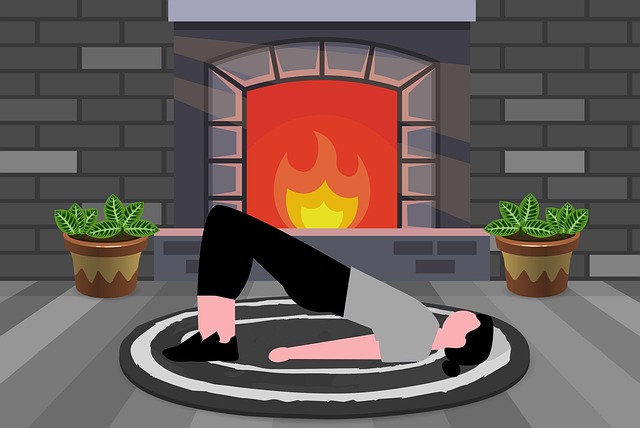Establish a sustainable, holistic approach to health and fitness by combining regular exercise routines (like walking, cycling, swimming or dancing), balanced diet advice, staying hydrated tips, effective stress management through mindfulness, quality sleep tips, healthy meal planning, and portion control strategies to avoid processed foods. Set realistic goals, embrace gradual changes, and make exercise a joy by finding activities that fuel your body for lasting success in tips for a healthier lifestyle.
Looking to embrace a healthier lifestyle? Creating a sustainable exercise routine, coupled with balanced diet advice and effective stress management, is key. This guide provides practical tips for establishing regular exercise habits, from setting realistic goals and choosing enjoyable activities to creating a structured schedule. We’ll also explore balanced diet advice focusing on whole foods and portion control strategies, along with effective stress management techniques like mindfulness practices and quality sleep tips. Stay hydrated with expert guidance, making every aspect of your routine a foundation for overall well-being.
- Establishing a Regular Exercise Routine
- – Setting realistic goals
- – Choosing activities you enjoy
- – Creating a schedule and sticking to it
Establishing a Regular Exercise Routine

Establishing a regular exercise routine is a cornerstone of a healthier lifestyle. It’s not just about hitting the gym occasionally; it’s about integrating physical activity into your daily or weekly schedule for sustained benefits. Start by setting realistic goals and choosing activities you genuinely enjoy, whether that’s brisk walking, cycling, swimming, or dancing. Consistency is key; try to exercise at the same time each day to develop a routine.
Combine regular exercise with balanced diet advice, staying hydrated tips, effective stress management techniques like mindfulness practices, and quality sleep habits for optimal results. Healthy meal planning, including portion control strategies that avoid processed foods, will fuel your workouts and support overall well-being. Remember, making these changes gradually can lead to lasting success in achieving a healthier lifestyle.
– Setting realistic goals

Creating a sustainable exercise routine isn’t just about pushing your limits; it’s about building a lifestyle that supports your overall well-being. Tips for a healthier lifestyle start with setting realistic goals. Aiming to run a marathon overnight can be demotivating and lead to burnout. Instead, focus on gradual improvements like increasing your daily step count by 10% each week or dedicating 30 minutes daily to movement, whether it’s walking, cycling, or yoga. Incorporate balanced diet advice into your routine; fuel your body with whole foods, ensuring adequate protein for muscle repair and complex carbohydrates for sustained energy.
Complement your physical efforts with effective stress management and mindfulness practices. Techniques like meditation, deep breathing, or journaling can calm your mind and reduce the physiological effects of stress on your body. Prioritize quality sleep tips, aiming for 7-9 hours nightly to support muscle recovery and hormone balance. Remember, consistent effort trumps intense but sporadic workouts. Healthy meal planning and portion control strategies are key; prepare meals in advance to avoid relying on processed food, and listen to your body’s hunger cues to prevent overeating.
– Choosing activities you enjoy

Creating a sustainable exercise routine isn’t just about checking boxes; it’s about finding activities that ignite your joy and fuel your body. When you enjoy what you’re doing, you’re more likely to stick with it in the long run. Think about activities that make your heart sing—dancing, hiking, swimming, or even a brisk walk around your neighborhood. Incorporating these into your routine will turn your workouts from chores into celebrations of movement and vitality.
Beyond choosing enjoyable activities, remember that a holistic approach to wellness is key. This includes supporting your body with effective staying hydrated tips, like sipping water throughout the day. Fuel your body with balanced diet advice and healthy meal planning strategies that focus on whole foods and portion control to avoid overeating. Prioritize quality sleep tips for rest and recovery, and explore mindfulness practices to help manage stress and cultivate a deeper connection with your body’s needs.
– Creating a schedule and sticking to it

Creating a structured schedule is a cornerstone for building a sustainable exercise routine. Start by incorporating regular physical activity into your daily or weekly calendar, treating it as non-negotiable appointments with yourself. Aim for consistent timing to establish a rhythm; this could be early mornings, during lunch breaks, or after work hours. When planning, consider your energy levels and choose times when you’re most likely to feel motivated and engaged.
A well-planned schedule ensures that exercise becomes an integral part of your lifestyle, promoting overall wellness. Remember, balance is key in achieving a healthy lifestyle. Combine regular exercise with balanced diet advice, staying hydrated tips, effective stress management techniques like mindfulness practices, and quality sleep habits. Healthy meal planning, portion control strategies, and avoiding processed food will further support your body’s well-being, enhancing the benefits of your consistent exercise routine.
Adopting a sustainable exercise routine is not just about achieving fitness goals; it’s a journey towards a healthier, happier life. By setting realistic targets, engaging in activities you love, and scheduling your workouts, you lay the foundation for long-term success. Combine this with balanced diet advice, effective stress management, mindfulness practices, quality sleep tips, healthy meal planning, portion control strategies, and staying hydrated tips, and you’re well on your way to a more vibrant and fulfilling lifestyle. Remember, small consistent steps lead to significant changes over time.
